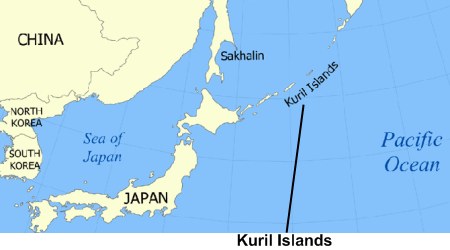The Superpower and the Caliphate

by BAR executive editor Glen Ford
[D]on’t believe the hype that the CIA is behind ISIS’s declaration of an Islamic State in Syria and Iraq. “The Caliphate threatens, not only its immediate adversaries, but the potentates of the Arab Emirates, Qatar, Kuwait and the Mother of All Monarchist Corruption in the Arab Sunni heartland, the Saudi royal family.” It also signals the collapse of U.S. strategy in the region.
“The game plan that was hatched in 2011 for Libya, Syria, Iraq – for the whole region – is kaput.”
ISIS has proclaimed its caliphate, and the world will never be the same again. Although the territorial scope of the jihadist political entity will shift with the fortunes of battle, or maybe even vanish, the emergence of the “Islamic State” signals the final collapse of U.S. imperial strategy in the Muslim world – certainly, in the Arab regions of Islam.
“The legality of all emirates, groups, states and organizations becomes null by the expansion of the caliph’s authority and the arrival of its troops to their areas,” said Abu Mohamed al-Adnani, spokesman [5] for the fighters formerly known as the Islamic State of Iraq and Syria. “Listen to your caliph and obey him. Support your state, which grows every day.”
Think of it as a Salafist declaration of independence – not just from al Qaida, whose marginality in the region was confirmed when its designated affiliate in Syria, Al-Nusra, swore allegiance [6] to ISIS – but from the Arab monarchies and western intelligence agencies that have nurtured the international jihadist network for almost two generations. The Caliphate threatens, not only its immediate adversaries in the Shiite-dominated governments of Syria and Iraq, but the potentates of the Arab Emirates, Qatar, Kuwait and the Mother of All Monarchist Corruption in the Arab Sunni heartland, the Saudi royal family. The threat is not inferential, but literal, against “all emirates, groups, states and organizations” that do not recognize that ISIS in its new incarnation is the embodiment of Islam at war.
The jihadist die is cast, a point of no return for the U.S. strategy of projecting imperial power in the region through armed Islamic fundamentalist surrogates. The international jihadist network, which did not exist before the CIA, Saudi Arabia and Pakistan created it to undermine the leftist secular government of Afghanistan in mid-1979 [7], has become a movement that can no longer be controlled. The physical contours of the ISIS caliphate, the movement’s dynamic new focal point, may prove indefensible, especially if the Americans decide they cannot avoid an all-out assault on their former asset. But, whatever the U.S. military response, the game plan that was hatched in 2011 for Libya, Syria, Iraq – for the whole region – is kaput, based as it is on the reliable deployment of jihadists as surrogates for NATO and Arab royals. Worse, the Arab oil potentates understand full well that their own regimes are now in grave danger from the indigenous monstrosity they have created. The Saudis, in particular, justify their family’s monopolizing of the Arabian peninsula’s great wealth as reward for safeguarding the holy sites of Islam. No doubt the “Islamic State,” with its movable borders and swiftly expanding pan-Arab and even pan-Muslim constituency, would be glad to assume these responsibilities – over the dead bodies of those Saudi princes who did not escape to London, Paris and New York. The same goes for all the royal lineages aligned with the West and, de facto, Israel.
“U.S. policymakers have no idea how to reposition themselves in the region.”
It is true that the United States retains nearly limitless power to create chaos in the region. Chaos is useful in preventing conventional governments and civil societies from achieving national goals that are inimical to imperialism. But chaos is not empty; it is a cauldron in which contradictions can become explosively acute. The jihadists are, at root, anti-imperialists – inalterably opposed to domination by the “Crusaders” of the West and Zionists. As we have previously asserted, the fundamentalist jihad, although profoundly reactionary, inevitably behaves much like a kind of nationalism – for some, it fills a political void left by the demise of yesteryear’s secular pan-Arab nationalism. ISIS now claims to be the expression of that nationalist-like yearning, as the “Islamic State.”
If you think all this is the work of the CIA, then thank them profusely for accelerating the epic unraveling of U.S. imperial strategy in the Muslim world. As during the days when America’s Egyptian stooge Mubarak was pushed from power, threatening an “Arab Spring” that might depose the oil monarchies, U.S. policymakers have no idea how to reposition themselves in the region. The Americans cannot replace the jihadists as foot soldiers of imperialism. Thus, a period of ad-libbing begins, which will surely involve ostentatious displays of U.S. military prowess, as the Americans remind themselves and everyone else that a superpower outranks a caliphate.
BAR executive editor Glen Ford can be contacted at Glen.Ford@BlackAgendaReport.com [8].
- War Against Syria [1] |
- U.S. War Against Iraw [2] |
- Jihadist Wars [3]





